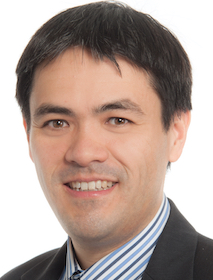Take Home Message: Misconceptions with regards to the causes of Atopic Dermatitis (AD) and touted “dangers” in its management constitute hurdles to effective management (details in the abstract). The parents of children with AD need to receive effective education. (Presentation from Hong Kong, SAR)
Comments
-This presentation goes through the misconceptions which surround AD:
-Current medical management is much more effective in the improvement of AD
-However…There is a big problem when it comes to Food; In affluent consumerist Societies there is a powerful broadcast of information (unreliable or not) – which easily finds an attentive ear of anxious parents.
1. Sensitization tested to some Foods doesn’t mean that these are genuine Food allergies or that children with AD have food allergies
2. Leads to avoidance dietary regimens which are useless in most cases
3. Dietary supplements are often unproven and given by parents often completely unaware of their benefit.
-To read all our articles on AD, click HERE
-To visit our Facebook page on AD, click HERE
Abstract
-Childhood eczema is one of the most common atopic diseases associated with chronicity and often a relapsing course. The disease may “march” to involve the airways. There are many myths, fallacies and controversies in its management, especially in East Asian Societies.
–Controversies exist in such common issues as the ideal emollient usage, steroid phobia and its usage, allergy tests, allergen avoidance, complementary and alternative medicine usage. Moisturizer and emollient usage is the fundamental step but many parents would abandon conventional moisturizers and use alternative and often expensive creams with no proven values.
–Food is often implicated too readily in its pathophysiology.
-Hence one aspect in management is to identify the underlying allergen(s) with the belief that their avoidance will prevent its occurrence, cure the disease or at least ameliorate its severity. In many affluent Asian cities where myths and fallacies abound, food avoidance and dietary supplementation has become all the more a vogue. Most children do not have genuine multi-food allergy, and only few common food allergens are involved. In Hong Kong, parents generally think doctors do not advocate food avoidance, and insistent to believe their atopic children have multiple food allergies. In infancy, many parents would believe that cow’s milk protein is the principal food allergen. Hence anxious non-breastfeeding mothers will change milk formula from one brand or type to another often within very short time span, but do not see any benefit as a result of avoidance of milk. In toddlers and older children, parents may request skin and blood tests in search of the often elusive food allergens. In recent years, food specific IgG testing has become fashionable. Commercial ELISA kits that test many ethnic-specific food items with tiny amounts of blood are used. The results are often positive for multiple foods. Based on these results, more food items will be avoided on top of the already long list of food that these parents will customarily avoid, albeit without any appreciable beneficial effects. Testing of IgG4 to foods is considered as irrelevant for the laboratory work-up of food allergy or intolerance and should not be performed in case of food-related complaints.
-Parallel to the practice of multiple food avoidance, many parents would give expensive dietary supplementation to their child with eczema. Multivitamins, evening primrose oil supplements and various mineral and “natural” products are used without parents knowing what exactly they are. In addition to food avoidance, many of these anxious parents often have “co-morbidities” of “hearsay” syndrome (or Mr Cheung and Mrs Lee syndrome), steroid phobia, “In-search-of-cure syndrome, fear of western medicine, and love of Complementary of Alternative medicine (CAM).
-Like asthma and allergic rhinitis, childhood eczema is a common atopic disease which is associated with chronicity and impaired quality of life of the patients and their families. Management generally includes patient education, avoidance of triggers, regular use of emollient and appropriate use of topical CS. Nevertheless, myths and non-adherence on various therapeutic aspects prevail and management of this disease remains suboptimal. CS is the first-line treatment during disease flare.
–Steroid phobia (SP), however, has largely restricted the usefulness and efficacy of therapeutic CS. Many parents would seek alternative and folklore treatment of unproven efficacy. Paradoxically, some of these alternative treatments may contain potent CS and unknowingly used by steroid phobic parents. Topical or systemic CS is a very important class of immunomodulating and anti-inflammatory medication. Steroids are inexpensive and efficacious armamentariums.
-This lecture explores prevalent controversies in eczema management in East Asian Societies. Health care professionals must be aware of the evidence of efficacy and adverse effects of these practices to provide correct advice to confused and often misinformed parents and caregivers for the management of this complex disease.
Reference Regional Congress of Dermatology (RCD) 2016 – Singapore. RCD16-0483 Workshop 4: Asian Paediatric Dermatology Workshop Controversies in the treatment of AD in East Asian societies K.L.E. Hon1 1The Chinese University of Hong Kong, Paediatrics, Hong Kong, Hong Kong- China



 +41 22 738 18 48
+41 22 738 18 48